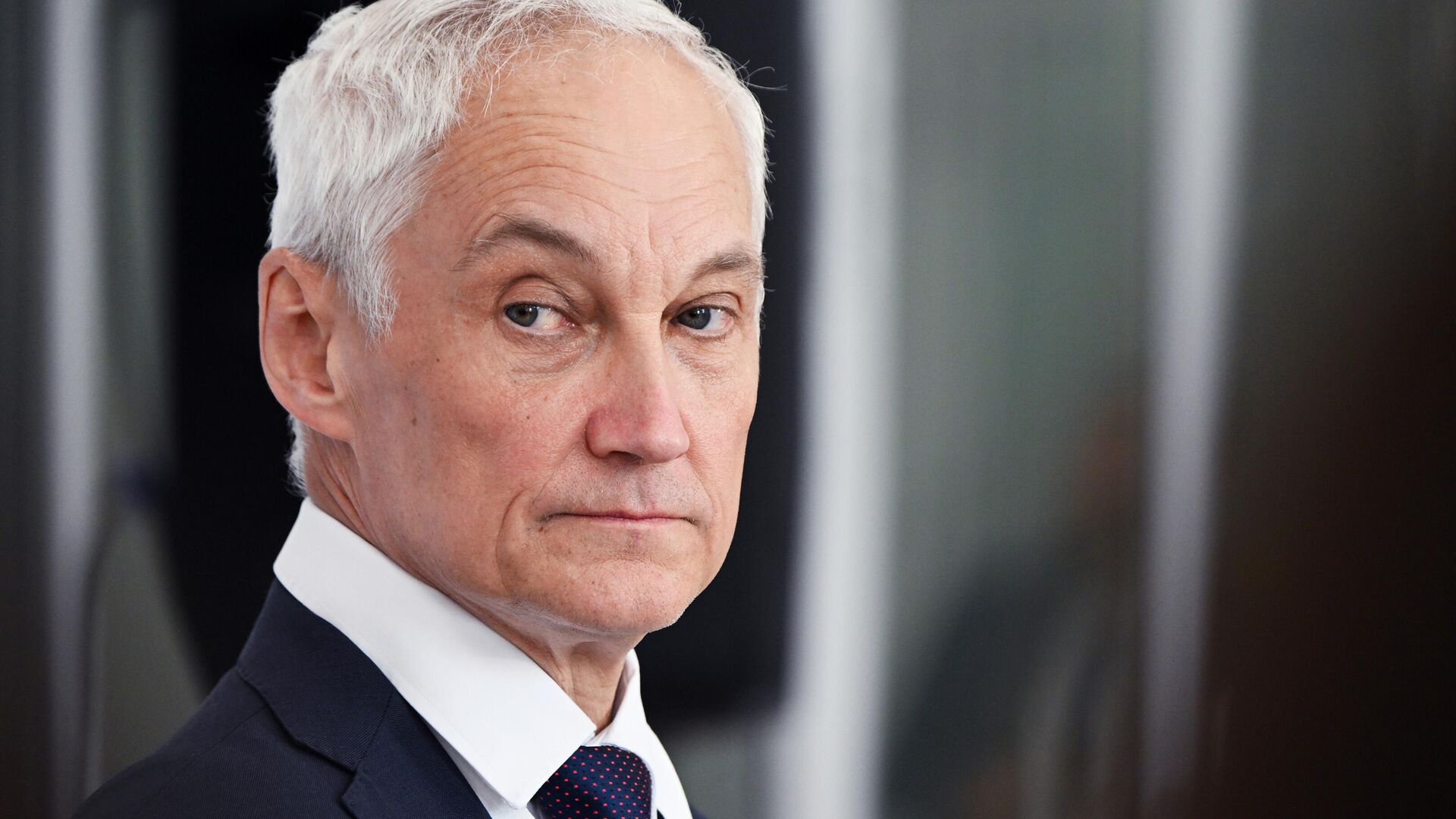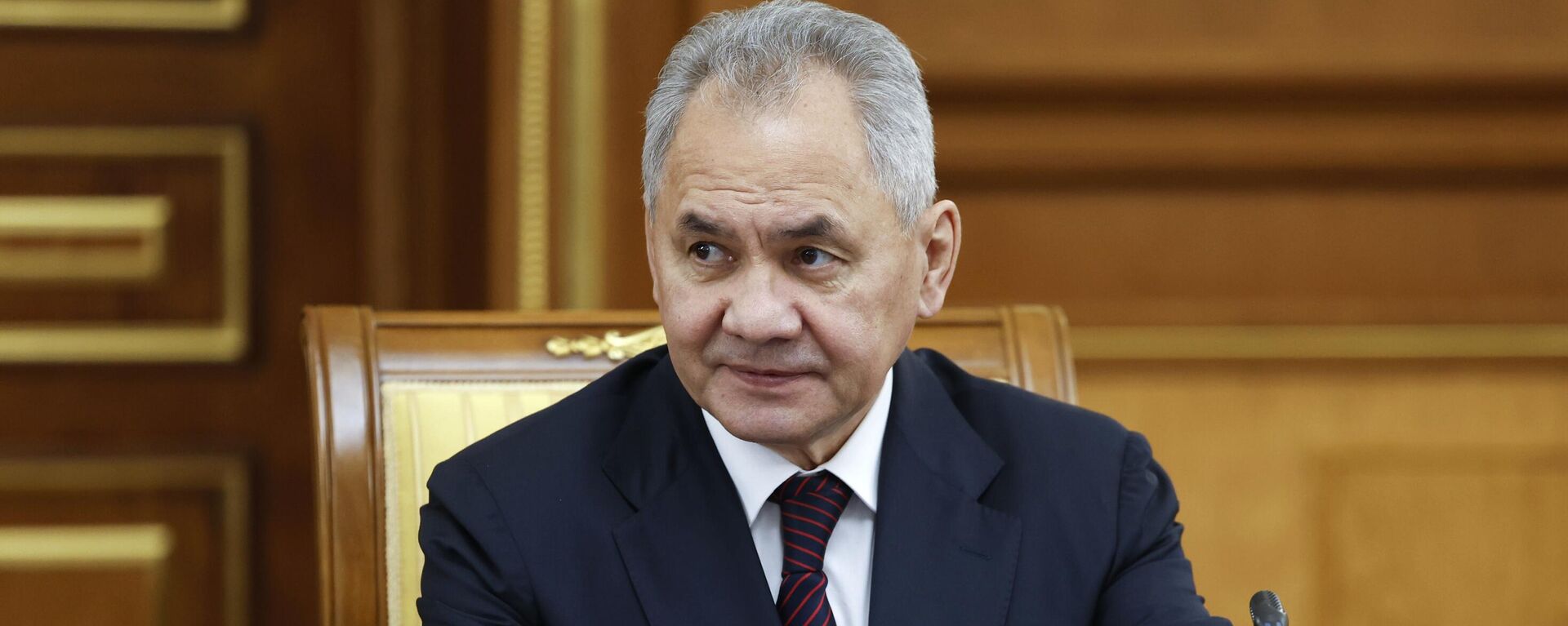https://sputnikglobe.com/20240513/how-new-defense-minister-belousov-may-create-problems-for-russias-adversaries-1118413681.html
How Andrei Belousov May Create Problems for Russia's Adversaries as Defense Minister
How Andrei Belousov May Create Problems for Russia's Adversaries as Defense Minister
Sputnik International
While Russian President Vladimir Putin’s proposal to replace Minister of Defense Sergei Shoigu with veteran economist Andrei Belousov may come as a surprise to some, there seems to be a good motive behind his move.
2024-05-13T18:05+0000
2024-05-13T18:05+0000
2024-05-13T18:11+0000
analysis
russia
andrei belousov
russian defense ministry
economy
military
https://cdn1.img.sputnikglobe.com/img/07e8/05/0c/1118402324_0:180:3241:2003_1920x0_80_0_0_bbbb4af1dc638260c0641b1667070a82.jpg
Andrei Belousov’s appointment as Russia’s newest minister of defense may help take Russia’s military-industrial complex and the entire weapon procurement system to a whole new level, argues Russian political analyst Sergei Poletaev.According to him, a de facto grassroots “technological revolution” has happened in Russia over the past two years when groups of enthusiasts supplied the armed forces with repurposed civilian drones worth no more than $300 apiece that could be used to take out enemy military hardware worth millions of dollars. Being a talented economist, Belousov can combine the pros of the two approaches in weapon procurement – the “planned, government” method and the “spontaneous grassroots” method – and weed out their cons, Poletayev suggests. Many Russian soldiers in the field come up with technological and tactical solutions that could become a boon for the Russian Armed Forces, but there is no streamlined way for them to share their ideas with the higher-ups, he notes. He also points out that Russia’s military spending has been steadily growing in recent months, and while the situation is far from critical, it would be prudent for Moscow to ensure that this money does not go to waste.Last weekend, Russian President Vladimir Putin proposed the candidacy of Andrei Belousov for the position of Russia’s defense minister. Belousov is a veteran Russian economist who started off as a researcher at the Soviet Academy of Sciences’ Central Economic Mathematical Institute and later with the Institute of Economic Forecasting of the Russian Academy of Sciences. After being appointed deputy minister of economic development and trade in 2006, Belousov served in several prominent positions in the Russian government before becoming first deputy prime minister in 2020 – an office he held until now.
https://sputnikglobe.com/20240513/shoigu-will-monitor-work-of-russias-service-for-military-technical-cooperation-1118413190.html
russia
Sputnik International
feedback@sputniknews.com
+74956456601
MIA „Rossiya Segodnya“
2024
Sputnik International
feedback@sputniknews.com
+74956456601
MIA „Rossiya Segodnya“
News
en_EN
Sputnik International
feedback@sputniknews.com
+74956456601
MIA „Rossiya Segodnya“
Sputnik International
feedback@sputniknews.com
+74956456601
MIA „Rossiya Segodnya“
andrei belousov, russian ministry of defense, russia military industrial complex, russia military economy
andrei belousov, russian ministry of defense, russia military industrial complex, russia military economy
How Andrei Belousov May Create Problems for Russia's Adversaries as Defense Minister
18:05 GMT 13.05.2024 (Updated: 18:11 GMT 13.05.2024) While Russian President Vladimir Putin’s proposal to replace Minister of Defense Sergei Shoigu with veteran economist Andrei Belousov may come as a surprise to some, there seems to be a good motive behind his move.
Andrei Belousov’s appointment as Russia’s newest minister of defense may help take Russia’s military-industrial complex and the entire weapon procurement system to a whole new level, argues Russian political analyst Sergei Poletaev.
According to him, a de facto grassroots “technological revolution” has happened in Russia over the past two years when groups of enthusiasts supplied the armed forces with repurposed civilian drones worth no more than $300 apiece that could be used to take out enemy military hardware worth millions of dollars.
Being a
talented economist, Belousov can combine the pros of the two approaches in weapon procurement – the “planned, government” method and the “spontaneous grassroots” method – and weed out their cons, Poletayev suggests.
Many Russian soldiers in the field come up with technological and tactical solutions that could become a boon for the Russian Armed Forces, but there is no streamlined way for them to share their ideas with the higher-ups, he notes.
“If Belousov can create a system, a platform to convert this experience into orders that could then be sent to weapon manufacturers who would thus be allowed to better understand what is required and to better react to this input, and then to mass produce the most successful solutions – that would generate a tremendous impulse,” Poletaev muses.
He also points out that Russia’s military spending has been steadily growing in recent months, and while the situation is far from critical, it would be prudent for Moscow to ensure that this money does not go to waste.
Last weekend, Russian President Vladimir Putin proposed the candidacy of Andrei Belousov for the position of Russia’s defense minister.
Belousov is a veteran Russian economist who started off as a researcher at the Soviet Academy of Sciences’ Central Economic Mathematical Institute and later with the Institute of Economic Forecasting of the Russian Academy of Sciences.
After being appointed deputy minister of economic development and trade in 2006, Belousov served in several prominent positions in the Russian government before becoming first deputy prime minister in 2020 – an office he held until now.



